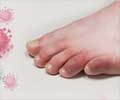Patients with PTSD disorder are at a higher risk of morbidity and severe complications
- PTSD patients are likely to suffer from more severe complications of SARS-COVID 19
- Psychiatric disorders increase the risk of death, and fewer PTSD patients survive COVID
Risk of post-traumatic stress symptoms in hospitalized and non-hospitalized COVID-19 recovered patients. A cross-sectional study
Go to source). The researchers also quantified the risks for patients with other psychiatric disorders and substantiated findings from other studies. Those with psychosis had a 58% increased risk of death and a 66% increased risk of hospitalization, relative to those without psychiatric diagnoses (2✔ ✔Trusted Source
Mental disorders and risk of COVID-19-related mortality, hospitalisation, and intensive care unit admission: a systematic review and meta-analysis
Go to source).
Led by first author Kristen Nishimi, Ph.D., of the UCSF Department of Psychiatry and Behavioral Sciences and the Mental Health Service at the San Francisco VA Health Care System, the research tracked the data from veterans who tested positive for COVID between February 2020 and August 2021, most of the cases were prior to vaccination. In total, there was 6% morbidity among veterans, and 15% had been hospitalized within 60 days of testing positive (3✔ ✔Trusted Source
Pre-pandemic resilience to trauma and mental health outcomes during COVID-19
Go to source).
The average age of the veterans was 60, and 90% were male. Some 26% had PTSD, and a further 28% had a different psychiatric condition.
The researchers also compared veterans with each mental health disorder to veterans who did not have any psychiatric disorders. Additionally, they were also adjusted for co-occurring medical conditions, including diabetes, cancer, HIV, and cardiovascular, lung, kidney, and liver diseases, as well as by factors like smoking and obesity. It is important to note that veterans are highly susceptible to PTSD, but their symptoms tend to be milder and better managed.
Surprisingly, the PTSD group had better outcomes than patients with other psychiatric disorders. “PTSD is routinely screened in the VA Health Care System, so it may be more reliably detected even in less severe cases compared with other psychiatric conditions,” said Nishimi, who is also affiliated with the UCSF Weill Institute for Neurosciences. “Older veterans, who may have been diagnosed with PTSD many years ago and have chronic PTSD, may have symptoms that are relatively less severe or better managed,” she said, noting that PTSD in patients under 65 with COVID had worse outcomes than in older patients (16% higher risk of hospitalisation compared with 6% for the 65-plus cohort).
Co-occurring Conditions can Make COVID-19 Outcomes Worse in PTSD Patients
Patients with PTSD were compared to those without psychiatric disorders, and they had a 13% higher risk of death from COVID. This compares with an 8% higher risk when other medical conditions, smoking, and obesity are taken into consideration. Consistent with prior evidence, this suggests that unhealthy lifestyles like physical inactivity, poor diet, and smoking, as well as co-occurring medical conditions, may contribute to the worse outcomes of COVID for patients with PTSD and other mental illnesses.Other mechanisms that could account for higher risks for patients with mental illness include elevated inflammation and dysregulated immune functioning, said senior author Aoife O’Donovan, PhD, also of the UCSF Department of Psychiatry and Behavioral Sciences and of the San Francisco VA Health Care System. “Psychological stress from the pandemic overall or the experience of the SARS-CoV-2 infection itself may have exacerbated psychiatric symptoms, which could affect the inflammatory response. Additionally, PTSD may accelerate cellular ageing by shortening telomeres, thus increasing the risk of age-associated diseases,” she said. “While other psychiatric conditions have been linked to comorbidities, inflammation, and health risk behaviors, PTSD, in particular, is characterized by lower levels of the stress hormone cortisol, which has anti-inflammatory properties that may be beneficial in reducing the inflammatory activity that underlies many adverse outcomes of COVID.”
References:
- Risk of post-traumatic stress symptoms in hospitalized and non-hospitalized COVID-19 recovered patients. A cross-sectional study - (https://pubmed.ncbi.nlm.nih.gov/34968807/)
- Mental disorders and risk of COVID-19-related mortality, hospitalisation, and intensive care unit admission: a systematic review and meta-analysis - (https://pubmed.ncbi.nlm.nih.gov/34274033/)
- Pre-pandemic resilience to trauma and mental health outcomes during COVID-19 - (https://www.ncbi.nlm.nih.gov/pmc/articles/PMC9514982/)
Source-Medindia















